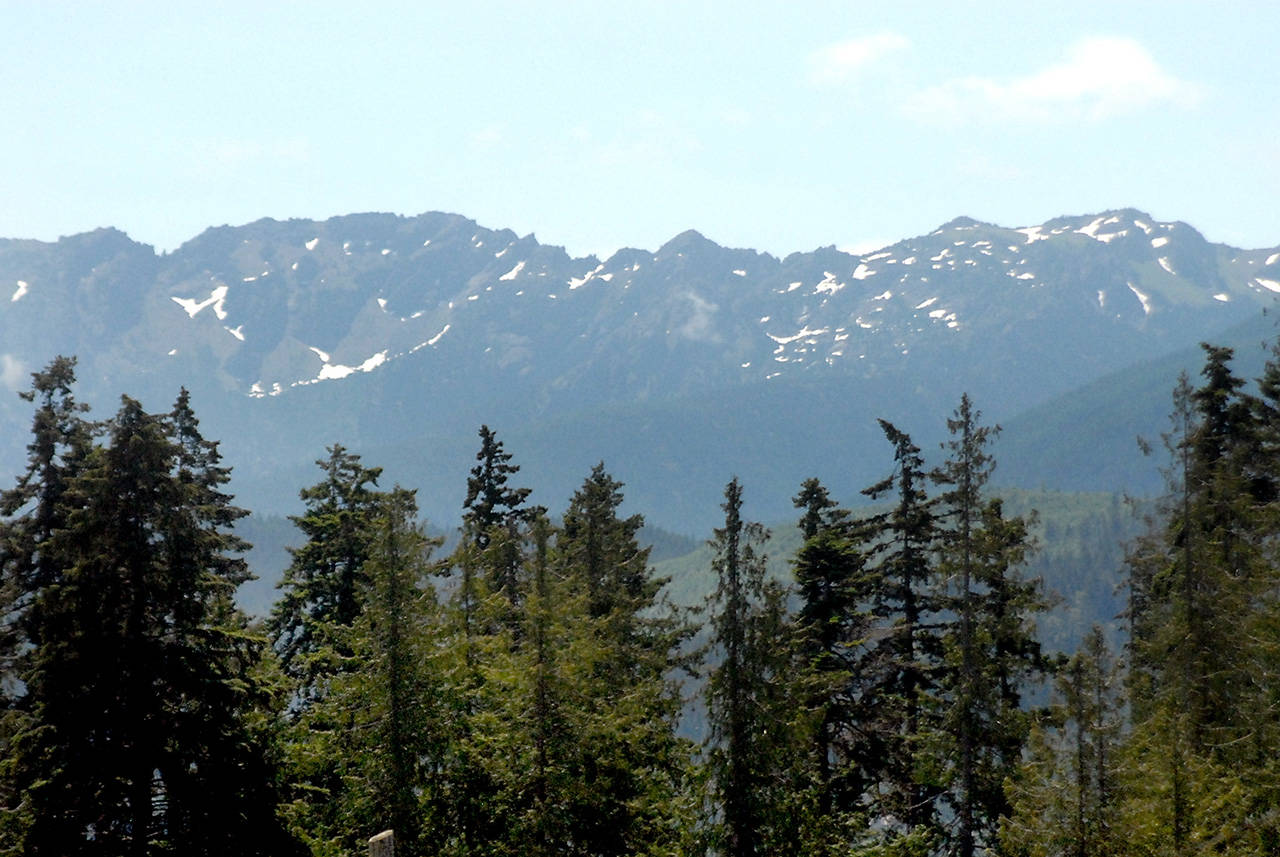The snow has melted from the Olympic Mountains.
That’s normal for this time of year, but officials are starting to eye water conservation where possible as conditions continue to dry out.
Gains made last winter, which ended with a higher-than-normal snowpack in the Olympic Mountains, were lost to less rain than usual and high temperatures in late spring. Snotel sites have little snow to measure.
“Everything is pretty well melted out,” said Scott Pattee, a water supply specialist with the U.S. Department of Agriculture’s Natural Resources Conservation Service in Mount Vernon.
“They all melted out pretty much as normal,” he said earlier this month.
The historic heat wave in late June had little impact on the Olympic water basin.
The mountains were just about clear of snow already, Pattee said.
“We were considerably above normal at the peak of the season over there, and so we probably would’ve maintained snow a little out beyond normal and we would’ve if it wasn’t for the such high temperature days,” he said.
“So really, we had pretty much a normal melt time, but it did definitely come up a bit faster than it normally would’ve with the increased snow.”
In addition, evaporation from the ground and rivers is expected to be faster than normal this summer, given continued high temperatures and sunny skies, Pattee said.
The water table is expected to stay at normal levels for the time being, but after a few weeks of hot and dry weather, it will fall and rivers will start to pull from groundwater, Pattee said.
That quickens the process of drying for surrounding vegetation.
“We’re already starting to see that in Eastern Washington, especially in the lower to mid-elevations, where there’s a lot of grass and brush,” Pattee said. “That stuff is tinder dry.”
Areas around the Dungeness River, where water is used for irrigation, may have to cut water use later in summer due to hotter-than-usual conditions, Pattee said.
If river levels drop severely, it will reduce the number of salmon migrations come fall, and that could impact local fisheries especially, Pattee said.
“The flows just get so low, the fish can’t get over the bar to get up the river,” Pattee said.
That happened in 2015, when the salmon runs were disappointing because of low river levels due to a sparse snowpack.
So far this year, no concerns have been expressed about water shortages in mountain-fed streams from the Olympics, but that could change.
“I think this is another really prime year to stress the need for conserving the water supply that we have,” Pattee said.
“It doesn’t seem to make sense to conserve now when we don’t have a water shortage, but as much water as we can leave in the rivers, then that will sustain those groundwater supplies for longer and hopefully help us get through the upcoming months.”



